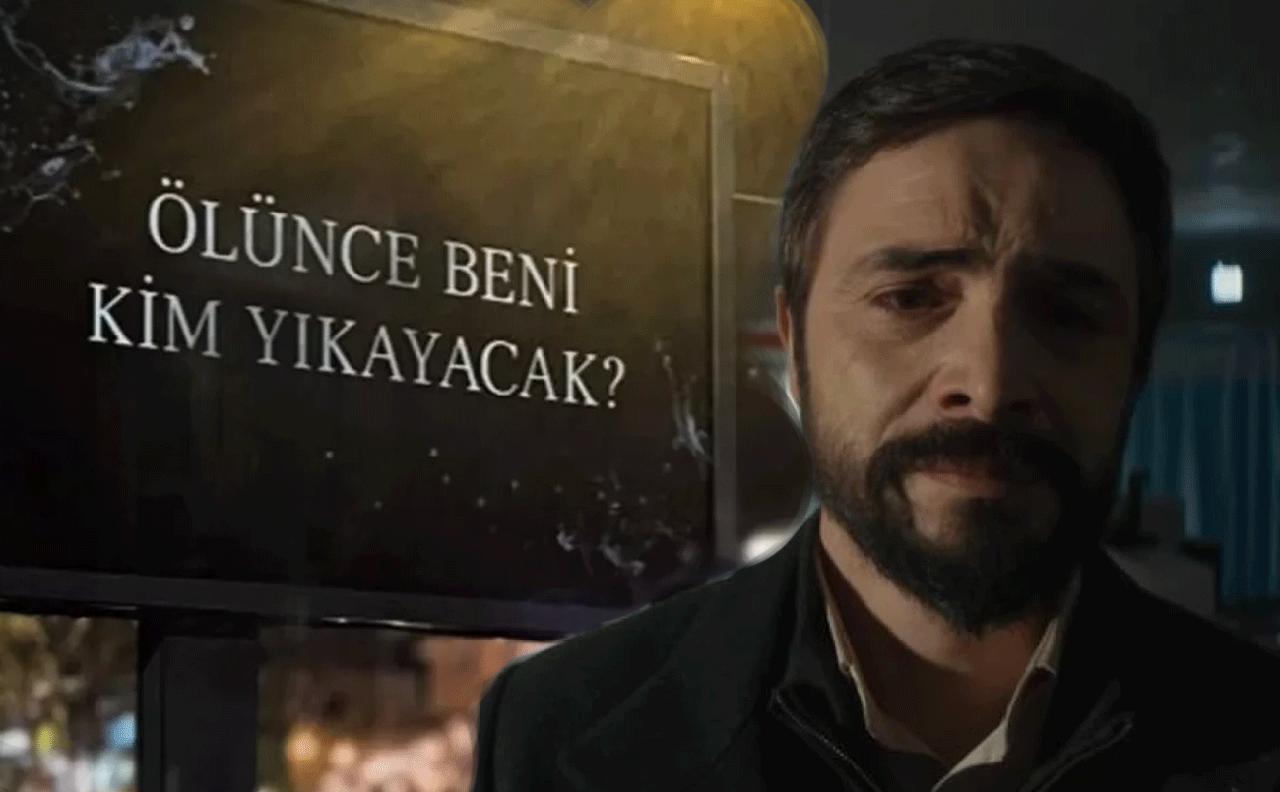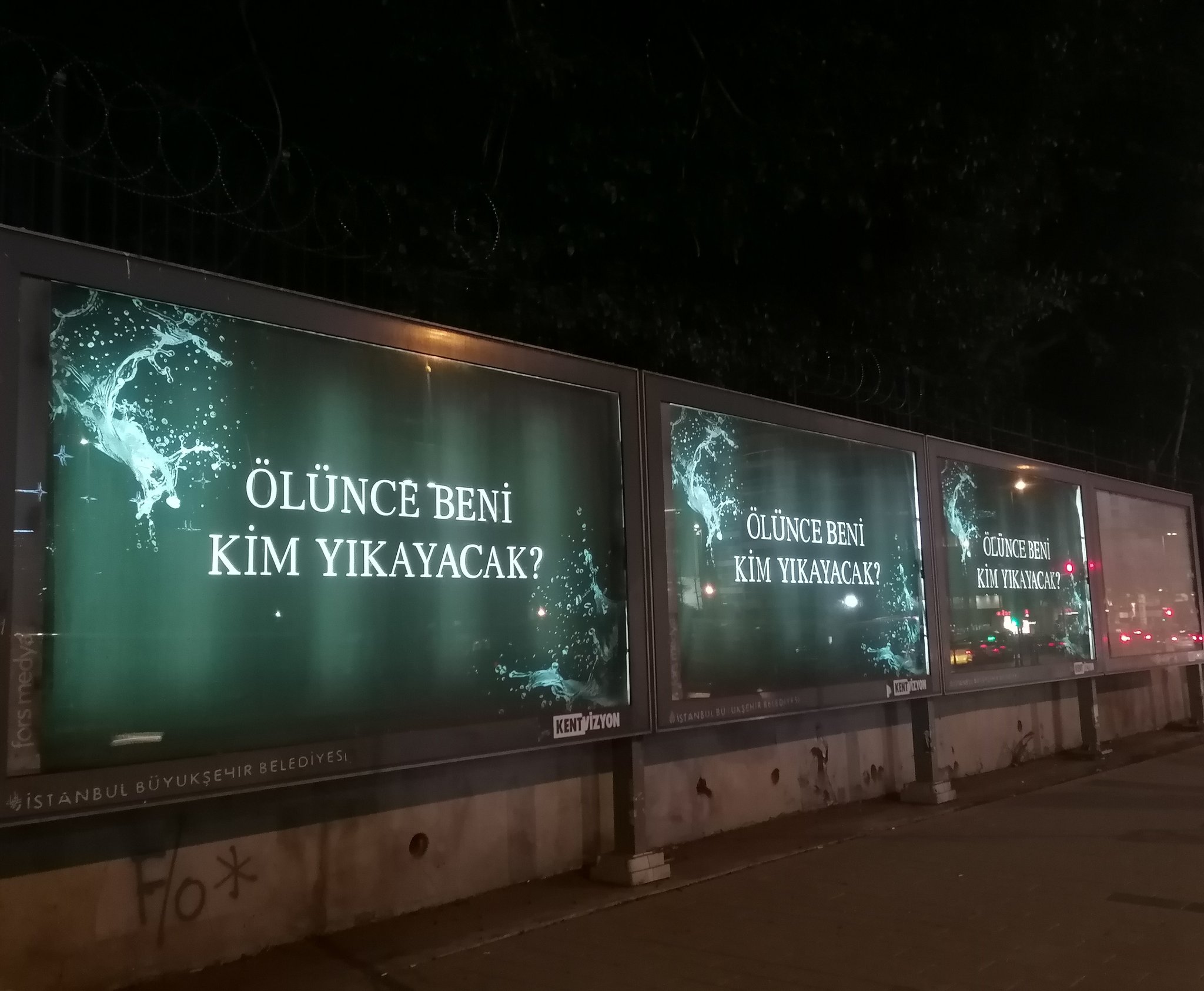
Türkiye's state-owned TRT's online platform Tabii is set to broadcast Gassal's second season on May 24. While the first season of the series sent shockwaves in Türkiye, let's dive deeper into what 'Gassal' actually means.
Being a gassal, or a corpse washer, is probably one of the most 'critical jobs' in the Islamic world, but is surrounded by a terrible stigma that gives the profession a bad name. A gassal is a person who performs the ritual of washing and preparing the dead bodies following religious customs.
This role involves cleansing, shrouding, and preparing the deceased for burial and is typically carried out in mosques, hospitals, or cemeteries.
In 2024, a Turkish TV series of the same name aired on the state broadcaster network, TRT, and quickly captured the attention of both local and international viewers.
The series follows Baki, a corpse washer (gassal) who confronts his own mortality and loneliness, exploring profound themes about death and human connection.
In accordance with Islamic religious customs, a gassal's job entails the ceremonial washing, bathing, and preparation of deceased bodies.
The gassal's sacred task of cleaning and shrouding the dead is a specialized role that blends religious, cultural, and social codes.
It ensures that the procedure complies with religious laws and honors the sanctity of death.
Gassal's view death as an inevitable arrival to God and view their work as a kind of spiritual service, frequently referring to it as "gaining God's approval." In addition to their technical responsibilities, they also play a profoundly spiritual and emotional role, demonstrating empathy and compassion for the departed and their families.
The profession carries social stigma and emotional challenges due to its close association with death, but it also holds a respected place in religious and cultural traditions.
Gassals are frequently used by organizations or municipalities in contemporary settings, and they must contend with the demands of both contemporary professional standards and traditional religious norms.
The work of a gassal is crucial in order to manage funeral customs and preserve cultural continuity in the face of modernity.

The profession of a gassal is seen as taboo primarily due to societal stigma linked to death and “dirty work”. This stigma stems from cultural beliefs, fear, and ignorance about the nature of the work, which entails close contact with dead bodies—a topic that many people find unsettling or frightening.
Because such labor is frequently viewed as morally, socially, and physically "tainted," those who engage in it face discrimination and social exclusion.
Cultural and religious sensitivities surrounding death, which view handling corpses as unclean or unlucky, serve to further reinforce this taboo, making those who work in the field feel uncomfortable or marginalized.
Like the effects of courtesy stigma observed in other stigmatized roles or conditions, the stigma can cause anxiety, social exclusion, and detrimental effects on the gassals' self-identity and social interactions.
The taboo around the gassal profession stems from societal fear of death, cultural notions of purity and impurity, and a general lack of knowledge, which together create social stigma and marginalization of those who perform this essential but "dirty" work.

The main character, Baki, starring Turkish actor Ahmet Kural, a middle-aged corpse washer (gassal) who leads a solitary life and takes immense pride in his work, is at the heart of the Gassal series' narrative.
The question, "Who will wash me when I die?" haunts Baki after he survives a violent incident at a cemetery.
As he deals with his own mortality, loneliness, and the social stigma associated with his line of work, this existential concern is what takes the story forward.
Since Baki takes great care and pride in his work, he wishes the same level of care will be done to him when he passes away. So throughout the first season, he tries to find someone to perform the ritual washing after his death. However, those he asks pass away one by one.
The series blends dark humor with heartfelt drama, exploring themes of death, isolation, and the human need for connection. It also portrays Baki’s deep respect for the ritual and his meticulous care in performing it, highlighting the spiritual and cultural significance of his work.
The show also draws on existential philosophy, particularly Heidegger’s idea that facing death is essential to living authentically. Baki's journey turns into a meditation on finding meaning outside of social conventions and accepting death as a necessary part of life.
The show is praised for its realistic depiction of Turkish life, its emotional depth, and its unique focus on a rarely explored profession and topic.
Although the gassal profession is seen as taboo, it is a societal stigma that stems from a lack of knowledge about the essential nature of the job.